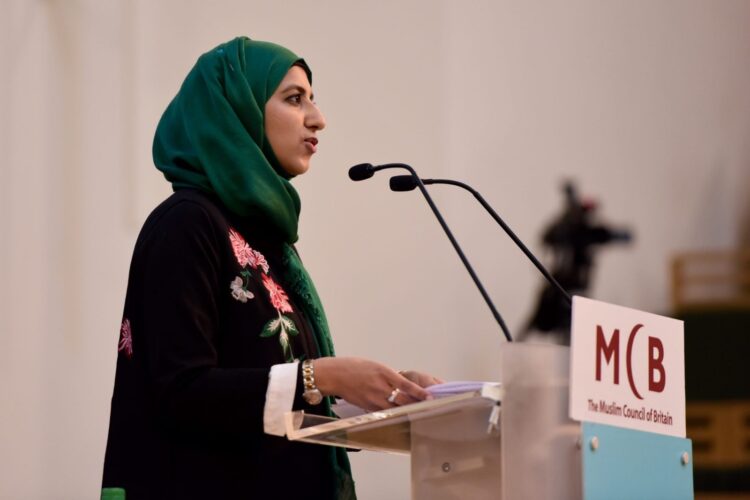By Ben Kerrigan-
Senior doctors, government scientific advisers, and a former head of the civil service, have called for a public inquiry into the UK’s handling of Covid-19, intensifying pressure on Boris Johnson to finally launch the process as the UK’s coronavirus fatalities rose to almost 126,000.
Thousands of bereaved families, nurses and ethnic minority leaders, have also backed calls for an inquiry into everything from lockdown tactics to the test and trace programme, after the UK’s handling of the pandemic resulted in what is reported to be the worst death toll per capita of any of the world’s large economies.
Those calling for an inquiry want to hold the British government accountable in terms of whether the extent of the pandemic in the UK was avoidable.
Others calling for an inquiry include Prof Dame Donna Kinnair, the general secretary of the Royal College of Nursing, Zara Mohammed, (pictured) the secretary general of the Muslim Council of Britain, Chaand Nagpaul, the chair of the British Medical Association.
Decision Making Process
Prof Andrew Hayward, an expert in infectious disease epidemiology who also sits on the Scientific Advisory Group for Emergencies (Sage), said in a personal capacity: “Many would argue that much of this could have been avoided if different [or] earlier decisions had been made at various points in the pandemic.
These decision-making processes therefore needs to be scrutinised and I think they are only likely to become completely clear if people are compelled to give evidence.”
He said the stress should be on “learning for the future rather than culpability”.
Legal Action
The Covid-19 Bereaved Families for Justice group is threatening legal action to force ministers to launch an inquiry, arguing an unprepared government “serially failed to take reasonable steps to minimise the effects of the pandemic, leading to massive, unnecessary loss of life”.
“It’s not just us bereaved families – there are millions of people around the country who want answers,” said Jo Goodman, a co-founder of the group. “Did the prime minister do everything he could to prevent it? Could his government have been better prepared or did it ignore warnings? Were decisions made which cost lives rather than saving them? An urgent statutory public inquiry is essential if we are to learn lessons and save lives now and in the future.”
Christinea McAnea, the general secretary of Unison, which represents 1.3 million health staff including porters, cleaners, care workers and nurses, said an independent, judge-led public inquiry should launch as soon as society opens up again – currently scheduled for 21 June.
“If the UK is to heal, people need to understand why things went so disastrously wrong,” she said. “There are key questions to answer about why care homes were left so vulnerable, frontline staff were without safety kit and testing was abandoned in the early stages.”
Lord Simon Woolley, who until last summer was the chair of the advisory group to the government’s race disparity unit, said he wanted a public inquiry to reach beyond scientific and medical factors to include housing, health, education and employment.
“For black, Asian and minority ethnic communities [Covid] has been utterly devastating,” he said, adding that if an inquiry followed the disease it would expose societal fault lines.
“This inquiry is a once-in-a-generation opportunity to dramatically change the infrastructure,” he said. “Are we going to put a plaster on a gaping wound or are we going to have an infrastructure change that builds to a fairer society?”
… we have a small favour to ask. You’
“We are focused on protecting the NHS and saving lives and now is not the right time to devote huge amounts of official time to an inquiry,” a government spokesperson said. “There will be an appropriate time in the future to look back, analyse and reflect on all aspects of this global pandemic.”
Other leading scientists calling for an inquiry include Prof Sir Paul Nurse, the director of the Francis Crick Institute and a Nobel Laureate
“It’s not just us bereaved families – there are millions of people around the country who want answers,” said Jo Goodman, a co-founder of the group. “Did the prime minister do everything he could to prevent it? Could his government have been better prepared or did it ignore warnings? Were decisions made which cost lives rather than saving them? An urgent statutory public inquiry is essential if we are to learn lessons and save lives now and in the future.”




